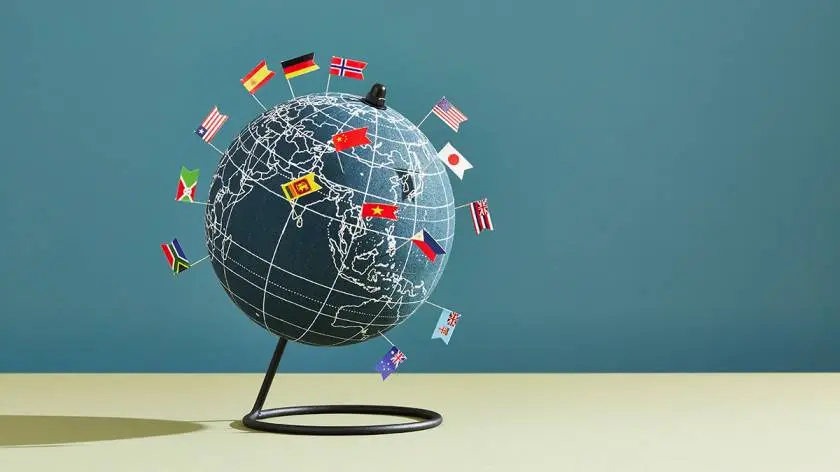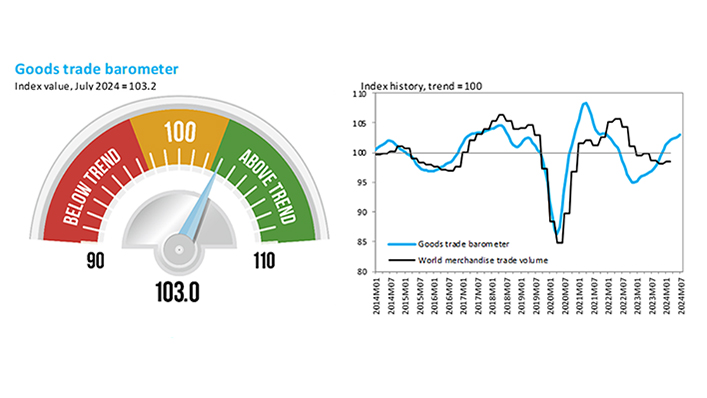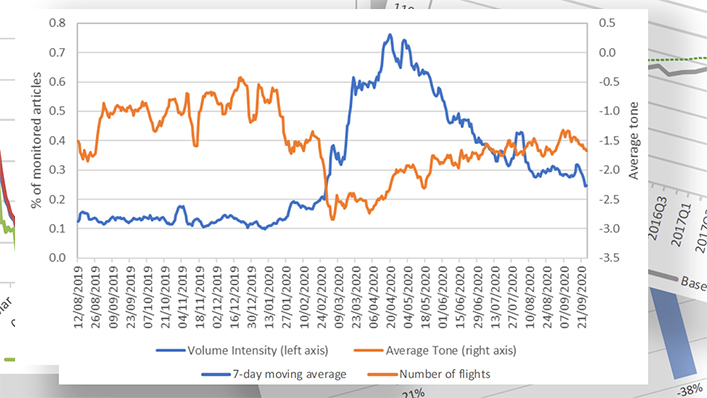
Rivalry is a basic consideration in any market, and the agreement on internal trade is no special case. For nations to find actual success in this field, they should fight with steadily changing rivalry from all sides of the globe. This article will investigate the impacts of rivalry on global exchange and what it means for purchasers and venders.
On the off chance that there is a point on which most financial specialists concur, it is that exchange among countries improves the world off.
However, worldwide exchange can be one of the most antagonistic of policy-driven issues, both locally and between state-run administrations. At the point when a firm or an individual purchases a decent or a help delivered all the more economically abroad, expectations for everyday comforts in the two nations increment.
There are different reasons shoppers and firms purchase abroad that additionally improve them; the item might prefer fit their necessities over comparative homegrown contributions, or it may not be accessible locally. In this article, I will guide you on What Role Does Competition Play in International Trade?

Regardless, the unfamiliar maker additionally benefits by making a larger number of deals than it could selling exclusively in its own market and by procuring unfamiliar trade (cash) that can be involved without anyone else or others in the country to buy unfamiliar-made items.
All things considered, regardless of whether social orders all in all gain when agreement on internal trade, few out of every odd individual or organization is in an ideal situation. At the point when a firm purchases an unfamiliar item since it is less expensive.
Read Also: What Are Three Threats to The Future of Global Trade?
It benefits, yet the (more exorbitant) homegrown maker loses a deal. Normally, be that as it may, the purchaser acquires more than the homegrown dealer loses. But in cases in which the expenses of creation do exclude such friendly expenses as contamination, the world is in an ideal situation when nations import items that are delivered all the more effectively in different nations.
The people who see themselves as being impacted antagonistically by unfamiliar contests have long gone against global exchange. Not long after market analysts, for example, Adam Smith and David Ricardo laid out the financial reason with the expectation of complimentary exchange.
English history specialist Thomas B. Macaulay was noticing the pragmatic issues states face in choosing whether to embrace the idea: Streamlined commerce, quite possibly of the best gift which an administration can give to a group, is in pretty much every nation disagreeable.
To comprehend what rivalry means for agreement on internal trade, it is first important to comprehend what contest is. Rivalry in worldwide exchange alludes to the cooperation among purchasers and dealers in the market to acquire the most ideal cost for labor and products.
This should be possible through different strategies, like wheeling and dealing, offering limits, or essentially giving a preferable item or administration over the opposition.
There are two principal sorts of rivalry in global exchange: immediate and aberrant. Direct rivalry happens when at least two firms offer a similar item or administration to a similar market. Circuitous contest, then again, happens when firms offer various items or administrations to a similar market. What Role Does Competition Play in International Trade?
The fundamental objective of the opposition is to get the most ideal cost for labor and products. In an unrestricted economy not entirely settled by organic markets. The cost increments when there is more interest for an item than supply. On the other hand, when there is more stockpile than request, the item cost goes down.

Contest among purchasers and dealers assists with guaranteeing that costs are fair and mirror the genuine worth of the item or administration. In a serious market, firms should continually endeavor to offer the most ideal cost to their clients to remain in front of the opposition. This prompts a more effective market and advantages the two purchasers and dealers.
One of the main elements deciding a country's outcome in agreement on internal trade is its terms of exchange. Terms of exchange are a proportion of the general costs of products and imports. It is determined by separating the cost of products by the cost of imports.
An agreement on internal trade is the capacity of a country to deliver labor and products at a lower cost than its rivals. A universally cutthroat nation enjoys a near upper hand over different nations, and that implies that it can create specific labor and products at a lower opportunity cost than different nations.
For instance, if Country A can create 1 unit of Good X for $10 and 1 unit of Good Y for $20, while Country B can deliver 1 unit of Good X for $15 and 1 unit of Good Y for $30, then Country A enjoys a near benefit in the development of Good X. This is on the grounds that it can create 1 unit of Good X for a lower opportunity cost than Nation B.
Read Also: What Is Global Supply Chain Management 2024?
Worldwide intensity is significant for the two makers and buyers. For makers, it permits them to sell their labor and products at a lower cost than their rivals.
This gives them an upper hand on the lookout and assists them with expanding their portion of the overall industry. For purchasers, worldwide seriousness brings about lower costs for labor and products. This prompts expanded buying power and a better quality of living.
To deliver two extra shirts, Country B redirects two hours of work from creating (two kilograms) steel. Country A redirects one hour of work from creating two shirts. It utilizes that hour of work to rather create three extra kilograms of steel. What Role Does Competition Play in International Trade?
However, a nation might be two times as useful as its exchanging accomplices making clothing; in the event that it is multiple times as useful in making steel or building planes, it will profit from making and trading these items and bringing in garments.
Its accomplice will acquire by trading garments in which it has a relative, however not outright benefit, in return for these different items (see box). The idea of similar benefit additionally reaches out past actual merchandise to exchange administrations, for example, composing a PC code or giving monetary items.
As a result of similar benefits, exchange increases the living expectations of the two nations. Douglas Irwin (2009) refers to near advantage as "uplifting news" for monetary turn of events.
Regardless of whether an emerging nation misses the mark on outright benefit in any field, it will constantly enjoy a similar benefit in the development of certain products" and will exchange productively with cutting-edge economies.
Contrasts in near benefit might emerge in light of multiple factors. In the mid-twentieth century, Swedish financial experts Eli Heckscher and Bertil Ohlin recognized the job of work and capital, supposed factor blessings, as a determinant of benefit.
The Heckscher-Ohlin recommendation keeps up with that nations will generally trade merchandise whose creation utilizes seriously the component of creation that is moderately plentiful in the country. So what are you wait? What Role Does Competition Play in International Trade?
Nations exceptional with capital like manufacturing plants and apparatus ought to send out capital-serious items, while those exceptional with work ought to trade work-concentrated items. Financial analysts today imagine that factor gifts matter; however, there are additionally other significant effects on exchange designs (Baldwin, 2008).
Late exploration finds that episodes of exchange opening are trailed by change across enterprises, yet inside them also. The expansion in rivalry coming from unfamiliar firms comes down to benefits, constraining less effective firms to agreement and accounting for additional proficient firms.
Development and new sections carry with them better innovations and new item assortments. Logically, the most significant is that exchange empowers more noteworthy choice across various sorts of products (say fridges).
This makes sense of why there is a ton of intra-industry exchange (for instance, nations that trade family fridges might import modern coolers), which is something that the element blessing approach doesn't envelop.
There are clear effectiveness benefits from exchange that result in more business-as usual items, yet more noteworthy item assortment. For instance, the US imports fourfold the number of assortments (like various sorts of vehicles) as it did during the 1970s, while the quantity of nations providing every great has multiplied.
A significantly more prominent advantage might be the more effective speculation spending that outcomes from firms approaching a more extensive assortment and nature of middle of the road and capital sources of info (think modern optical focal points instead of vehicles). By improving by and large venture and working with development, exchange can support higher development.
For sure, monetary models used to survey the effect of exchange regularly disregard impacts, including innovation moves and supportive of cutthroat powers like the development of item assortments. Do you want to learn about international trade and what role competition plays in it?
That is on the grounds that these impacts are hard to show, and results that really do consolidate them are dependent upon more prominent vulnerability.
Where this has been finished, notwithstanding, scientists have reasoned that the advantages of exchange changes like decreasing levies and other nontariff obstructions to exchange are a lot bigger than proposed by customary models.